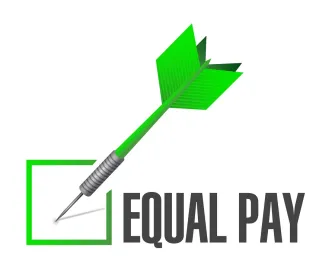Without doubt, the clear public policy of the State of New Jersey is – and always has been – to eradicate invidious discrimination from the workplace, and a central purpose of the New Jersey Law Against Discrimination (“NJLAD”), N.J.S.A. 10:5-12, is the prohibition of discrimination in all aspects of the employment relationship. Recently, this purpose has been extended by way of a new state mandate to ensure equal pay to all employees for equal, or “substantially similar,” work.
Effective July 1, 2018, the Diane B. Allen Equal Pay Act (the “Act”) became the most sweeping equal pay legislation in the nation. Prior to its enactment, equal pay was governed generally by Title VII and the NJLAD, as well as the federal Equal Pay Act of 1963, which is aimed at abolishing pay disparity only on the basis of gender. The New Jersey Equal Pay Act amended the NJLAD by furthering and broadening the prohibition against pay discrimination because, or on the basis, of an employee’s inclusion in any protected class. That means equal pay for everyone regardless of race, gender, age, ethnicity, religion, etc.
Specifically, it shall be an unlawful employment practice for “an employer to pay any of its employees who is a member of a protected class at a rate of compensation, including benefits, which is less than the rate paid by the employer to employees who are not members of the protected class for substantially similar work, when viewed as a composite of skill, effort and responsibility.” N.J.S.A. 10:5-12(t). The Act goes on to provide that “[a]n employer who is paying a rate of compensation in violation of this subsection shall not reduce the rate of compensation of any employee in order to comply with this subsection.” Furthermore, and importantly, the Act provides metrics by which an employer may pay a different rate of compensation to a member of a protected class relative to another similarly-situated employee, “only if the employer demonstrates that the differential is made pursuant to a seniority system, a merit system, or the employer demonstrates:
- That the differential is based on one or more legitimate, bona fide factors other than the characteristics of members of the protected class, such as training, education or experience, or the quantity or quality of production;
- That the factor or factors are not based on, and do not perpetuate, a differential in compensation based on sex or any other characteristic of members of a protected class;
- That each of the factors is applied reasonably;
- That one or more of the factors account for the entire wage differential; and,
- That the factors are job-related with respect to the position in question and based on a legitimate business necessity. A factor based on business necessity shall not apply if it is demonstrated that there are alternative business practices that would serve the same business purpose without producing the wage differential.”
In other words, the employees who perform substantially similar work must be paid the same rate, regardless of the titles or job descriptions they have. Employers are not required to pay every employee the same; employers may take into account experience, education, and quantity or quality of work product to establish a merit-based system for their business. If, however, similarly situated employees performing the same work are receiving different pay, the employer better be able to explain it as provided under the Act.
New Jersey’s Equal Pay Act levels the playing field for all employees of any race, creed, civil union status, gender identification, age, disability or otherwise, and requires that they receive equal pay for equal work. Given the remedial nature of the Act, the terms “compensation” and “benefits” likely will be interpreted liberally to include any compensation or benefits of employment, including commissions, bonuses and other incentive compensation, paid time off, deferred compensation, retirement plans and the like. The Act also specifically prohibits employers from retaliating against employees for discussing their pay with others or otherwise engaging in protected conduct with respect to seeking advice or advancing a claim with respect to the employer’s pay practices. N.J.S.A. 10:5-12(r).
Employers beware: the Act has sharp teeth. An aggrieved employee alleging discriminatory pay practices will be entitled to recover enhanced damages from his or her employer. Under the NJLAD, an employee is entitled to an award of compensatory damages, punitive damages if the conduct is willful, attorneys’ fees and costs. Under the New Jersey Equal Pay Act, a prevailing employee will be awarded treble damages (3x compensatory damages) in addition to the damages available under the NJLAD. Furthermore, the Equal Pay Act extends the statute of limitations for a discriminatory pay practice from two years to six years, thus expanding the reach of either the federal Equal Pay Act or NJLAD.
A six-year statute of limitations plus treble damages, on top of attorney fee-shifting and the possibility of punitive damages, for a violation means this is a mandate employers don’t want to mess with. So what should employers do to protect against equal pay act violations?
The Act requires a comprehensive and systemic review and audit of an employer’s pay practices. Employers should review, update or create equal opportunity, anti-discrimination, and standardized compensation policies and procedures. Managers, supervisors and all employees involved in the hiring process must be educated and trained. Employers should consider implementing standardized pay practices (including standardized performance evaluation processes) and guidelines for every position and job classification. These practices should be transparent. Job descriptions should be reviewed and modified, as needed, and wages and compensation should be normalized, as needed, by raising the pay of the lower-paid employee to match the pay of similarly situated employees. Lastly, employers should consider having a pay equity audit performed, which is designed to identify potential pay disparities among employees performing similar work, correct systemic problems, and review the employer’s past and present pay practices.


 />i
/>i

